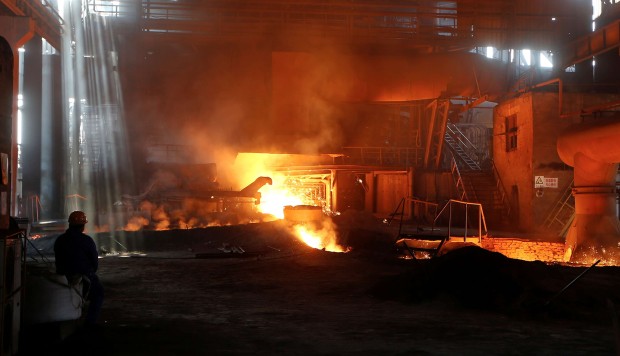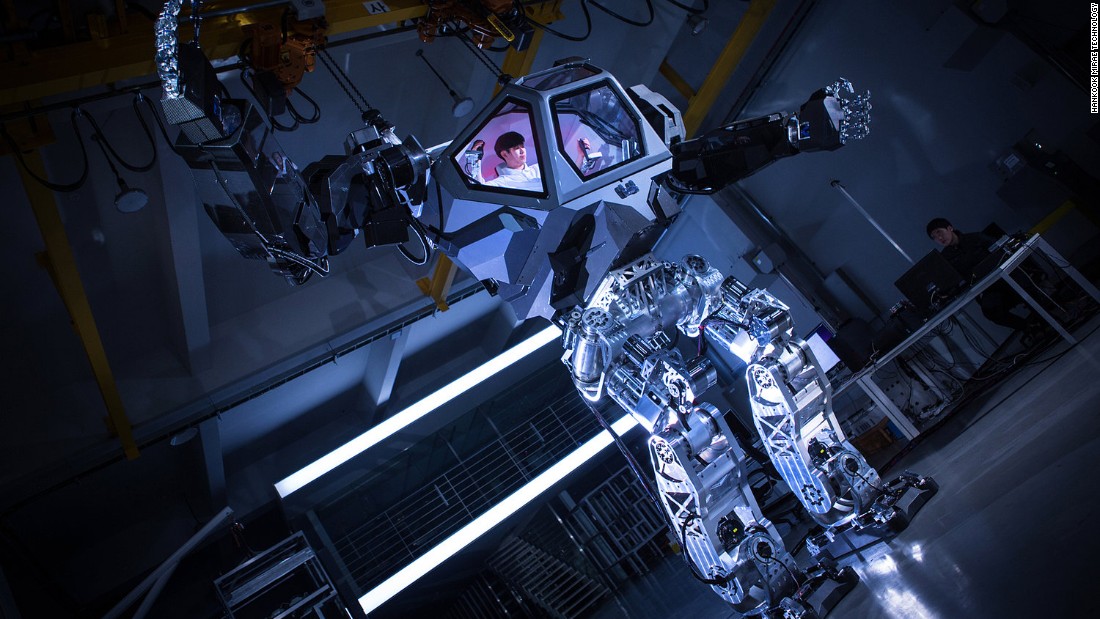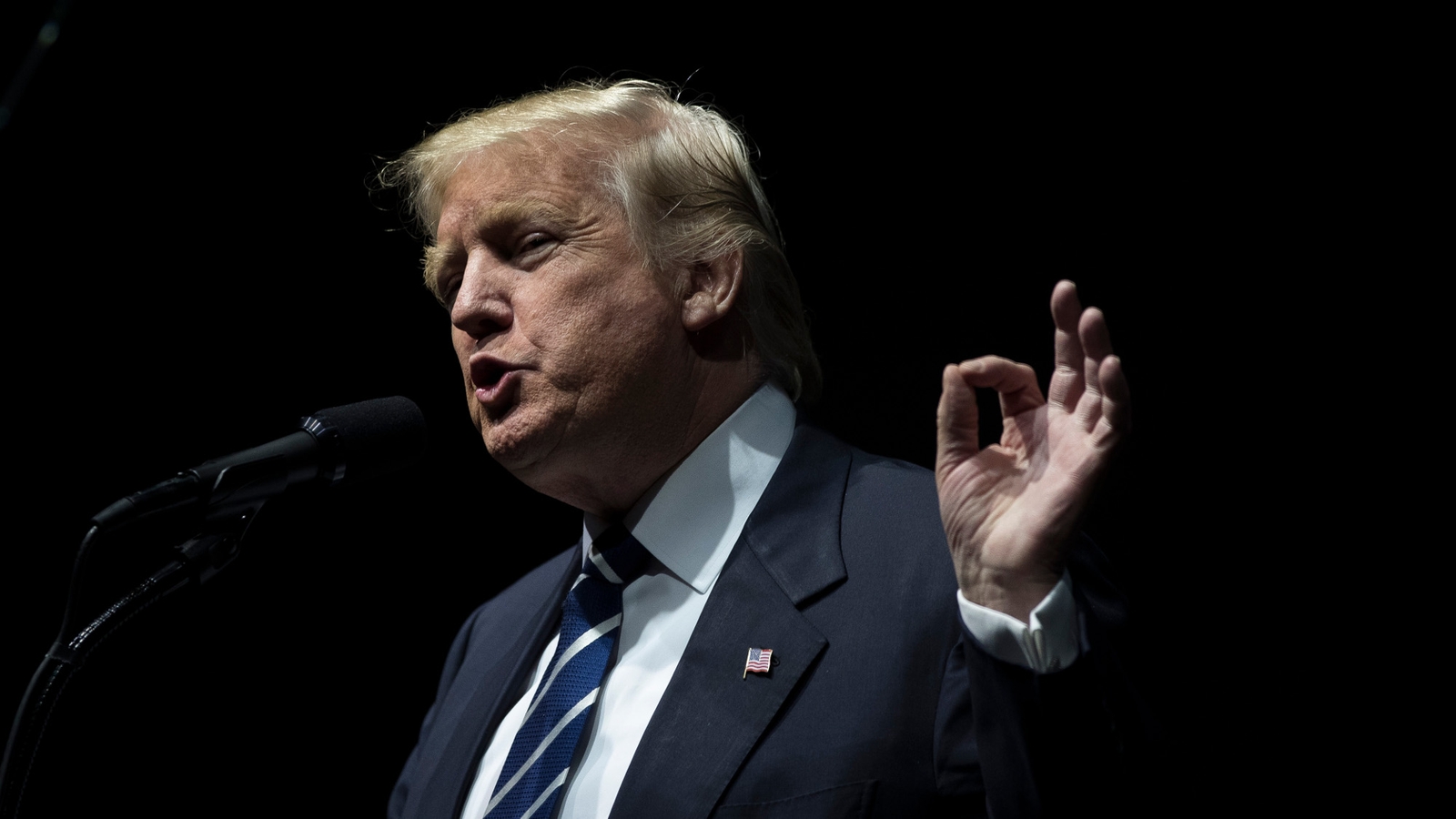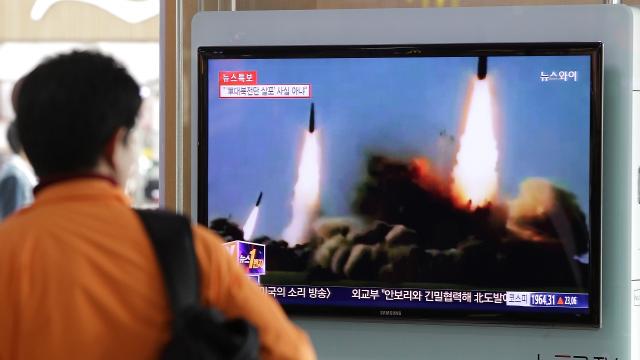 SEOUL, Korea, Republic Of – U. S. President-elect Donald Trump took to Twitter to vow that North Korea won’t develop a nuclear weapon capable of reaching parts of the United States. But it might already have done so.
SEOUL, Korea, Republic Of – U. S. President-elect Donald Trump took to Twitter to vow that North Korea won’t develop a nuclear weapon capable of reaching parts of the United States. But it might already have done so.
Views vary, sometimes wildly, on the exact state of North Korea’s closely-guarded nuclear and missile programs, but after five atomic test explosions and a rising number of ballistic missile test launches, some experts believe North Korea can arm short- and mid-range missiles with atomic warheads.
READ MORE: North Korea ‘won’t’ develop nuclear weapon capable of reaching US, Donald Trump says
That would allow Pyongyang to threaten U. S. forces stationed in Asia and add teeth to its threat last year to use nuclear weapons to “sweep Guam, the base of provocations, from the surface of the earth.”
Guam is a strategically important U. S. territory in the Pacific. Some experts see the U. S. mainland as potentially within reach in as little as five years if North Korea’s nuclear progress isn’t stopped.
Trump’s tweet on Monday night U. S. time was in response to North Korean leader Kim Jong Un, who said Sunday in his annual New Year’s address that preparations for launching an intercontinental ballistic missile have “reached the final stage.” He did not explicitly say a test was imminent.
Trump tweeted, “North Korea just stated that it is in the final stages of developing a nuclear weapon capable of reaching parts of the U. S. It won’t happen!”
READ MORE: North Korea says long-range missiles development is ‘in final stages’
Trump counsellor Kellyanne Conway said Monday on MSNBC that the world should be grateful Trump told millions of people that, where the North Korean threat is concerned, “he intends to stop it.”
WATCH: Donald Trump blames Hillary Clinton for North Korea’s nuclear tests
North Korea, poor, suspicious of outsiders and governed by a third-generation dictator, is used to being underestimated and mocked. Few believed it could build a nuclear program that would keep U. S. presidents since the early 1990s up at night.
Armed to the teeth, acutely bellicose and not afraid to push tensions on the Korean Peninsula to the brink, Pyongyang could be among Trump’s top foreign policy challenges.
Here’s a look at how close North Korea may already be to proving Trump’s tweet wrong:
THE NUKES
There’s a general consensus that Pyongyang has made significant nuclear and missile progress under Kim, who took over after his father, Kim Jong Il, died in late 2011.
Kim has conducted three of the country’s five total nuclear tests, including two last year. Propaganda out of Pyongyang makes clear that North Korea views nuclear weapons as essential to keeping at bay U. S. and South Korean forces it says are intent on its destruction.
READ MORE: US spy chief: getting North Korea to give up nuclear weapons ‘a lost cause’
Some U. S. experts believe North Korea may have enough fuel for about 20 bombs, with a half dozen more possible each year.
Fuel is one thing; it’s much more difficult to develop the technology needed to build bombs small enough to fit on missile tips.
Each new nuclear test, however, pushes the North another big step toward its goal of an arsenal of nuclear missiles capable of hitting the U. S. mainland.
THE MISSILES
Outsiders don’t know for sure whether North Korea can arm any of its ballistic missiles, regardless of range, with nuclear warheads yet.
But Siegfried Hecker, a leading North Korea nuclear expert, wrote after last year’s September nuclear test that outsiders should now assume that Pyongyang has “designed and demonstrated” atomic warheads that can be placed on short- and possibly medium-range missiles.
WATCH: South Korea has an assassination plan for Kim Jong Un: report
North Korea may deploy a “working, nuclear-tipped ballistic missile” by 2020, according to another expert, Euan Graham, director of the International Security Program at the Lowy Institute.
North Korea has an arsenal of short-range Scuds and mid-range Rodong missiles, and some South Korean experts believe those can already be armed with nukes.
That would put in danger the roughly 28,000 U. S. forces in South Korea and another 50,000 in Japan.
READ MORE: North Korea fails to launch another missile: US military
While there’s not a consensus, some South Korean experts also believe the North can place a nuclear warhead on the more powerful mid-range Musudan missile, which could target Guam, about 3,000 kilometres (1,900 miles) away. Last year, after a string of failures, North Korea launched a Musudan missile that some experts considered a success.
Kim Jong Un has already conducted more ballistic missile tests, including from submarines, in his short time in power than his father did during his entire 18-year reign, Graham wrote last year.
This has allowed “refinements” in solid propellants, road mobility and experiments with vertical launches to high altitudes that could complicate U. S. and Japanese missile defence systems’ efforts to intercept, Graham wrote.
PUTTING IT TOGETHER
Even if North Korea can fit a nuclear weapon on a missile, it has yet to meet the even greater challenge of building a nuclear-tipped ICBM capable of hitting the U. S. mainland.
Since 2012, North Korea has conducted three satellite launches using long-range rockets, in what outsiders consider covers for banned tests of ICBM technology.
As with the nuclear detonations, each new rocket test puts the North closer to having a nuclear missile that can target the U. S. mainland. Hecker estimates that it may take North Korea five to 10 years to succeed.
CHINA’S ROLE
Another tweet from Trump criticized China, North Korea’s most important ally, for not doing more to discourage its nuclear weapons program: “China has been taking out massive amounts of money & wealth from the U. S. in totally one-sided trade, but won’t help with North Korea. Nice!”
While Beijing has publicly reprimanded Pyongyang after nuclear tests and has agreed to rounds of U. N. sanctions against the North, critics say China hasn’t done enough to tighten economic pressure.
READ MORE: Reports of activity at North Korean satellite launch site
Hours after Trump’s comments, the Chinese state-run Global Times newspaper accused him of “pandering to ‘irresponsible’ attitudes.” It said Pyongyang’s nuclear program “stokes the anxieties of some Americans” who blame China rather than looking inward.
WHAT’S NEXT
Pyongyang has a habit of taking a swing at new U. S. presidents, so Trump may not have long to wait before getting a fresh look at North Korean nuclear or missile technology.
Or both: In 2009, a newly inaugurated Barack Obama was greeted with a nuclear test and a long-range rocket launch.
© Source: http://globalnews.ca/news/3157048/donald-trump-north-korea-nuclear-program/
All rights are reserved and belongs to a source media.
 By David Lawder
By David Lawder 

 Jackie Northam
Jackie Northam
 Donald Trump’s top pick as his US trade representative – a veteran supporter of “get tough on China” trade talks – will cast a further shadow over bilateral trade and investment ties, according to senior Chinese government advisers. Robert Lighthizer, a trade lawyer who served as deputy US trade representative under president Ronald Reagan in the 1980s, is tipped to head Trump’s top trade-negotiating agency. Analysts said Lighthizer’s expected nomination was just another example of Trump packing his economic team with conservative veterans of US steel interests and vocal critics of China’s trade barriers such as export subsidies and market access restrictions. Trump’s trade team, including his nominee for commerce secretary, billionaire investor Wilbur Ross, and Peter Navarro, director of the newly established National Trade Council, would inevitably make economic and trade ties between China and the US more difficult, according to former vice-commerce minister Wei Jianguo. Wei, now a deputy director of the China Centre for International Economic Exchanges, said the nomination of Lighthizer, one of Trump’s top trade advisers and a supporter of the president-elect’s tough approach to trade with China since at least 2011, was not surprising. “I am not optimistic about bilateral trade relations under Trump as we look set to see more disagreements and frictions on various import and export sectors, which is definitely not good news for China-US ties,” he said. “But considering the increasingly intertwined trade ties between Beijing and Washington in recent years, I don’t think we are going to see the possibility of a full-fledged trade war between the world’s top two economies.” Wang Huiyao, president of the Centre for China and Globalisation and an adviser to the State Council, said that while Beijing should be prepared for trade disputes under Trump, it was too early to say if he would translate his aggressive anti-free trade campaign rhetoric into policy. “Trump is a businessman and I think he is just talking tough to get better deals vis-à-vis China,” Wang said. Trade had been a central issue throughout Trump’s election campaign. “He has to talk tough on trade to China partly because that’s how he got elected,” Wang said. Analysts also noted Trump and many of his trade advisers, such as Navarro and Dan DiMicco, former chief executive of North Carolina-based steelmaker Nucor, vigorously opposed the 12-nation Trans-Pacific Partnership pact and promised to levy hefty tariffs on Chinese imports. Trump criticised China on Twitter on Monday for “taking out massive amounts of money & wealth from the US in totally one-sided trade” while refusing to rein in nuclear-armed North Korea. “We should take Trump’s tough talk seriously but not literally. I’d rather think he intends to test Beijing’s bottom line instead of provoking China,” Wei said. Under Trump, the US trade representative – who traditionally has had authority over trade negotiations – will not serve as the main architect of US trade policy, according to Reuters. Instead, the commerce secretary and Navarro’s new office are expected to play more important roles in setting the trade agenda.
Donald Trump’s top pick as his US trade representative – a veteran supporter of “get tough on China” trade talks – will cast a further shadow over bilateral trade and investment ties, according to senior Chinese government advisers. Robert Lighthizer, a trade lawyer who served as deputy US trade representative under president Ronald Reagan in the 1980s, is tipped to head Trump’s top trade-negotiating agency. Analysts said Lighthizer’s expected nomination was just another example of Trump packing his economic team with conservative veterans of US steel interests and vocal critics of China’s trade barriers such as export subsidies and market access restrictions. Trump’s trade team, including his nominee for commerce secretary, billionaire investor Wilbur Ross, and Peter Navarro, director of the newly established National Trade Council, would inevitably make economic and trade ties between China and the US more difficult, according to former vice-commerce minister Wei Jianguo. Wei, now a deputy director of the China Centre for International Economic Exchanges, said the nomination of Lighthizer, one of Trump’s top trade advisers and a supporter of the president-elect’s tough approach to trade with China since at least 2011, was not surprising. “I am not optimistic about bilateral trade relations under Trump as we look set to see more disagreements and frictions on various import and export sectors, which is definitely not good news for China-US ties,” he said. “But considering the increasingly intertwined trade ties between Beijing and Washington in recent years, I don’t think we are going to see the possibility of a full-fledged trade war between the world’s top two economies.” Wang Huiyao, president of the Centre for China and Globalisation and an adviser to the State Council, said that while Beijing should be prepared for trade disputes under Trump, it was too early to say if he would translate his aggressive anti-free trade campaign rhetoric into policy. “Trump is a businessman and I think he is just talking tough to get better deals vis-à-vis China,” Wang said. Trade had been a central issue throughout Trump’s election campaign. “He has to talk tough on trade to China partly because that’s how he got elected,” Wang said. Analysts also noted Trump and many of his trade advisers, such as Navarro and Dan DiMicco, former chief executive of North Carolina-based steelmaker Nucor, vigorously opposed the 12-nation Trans-Pacific Partnership pact and promised to levy hefty tariffs on Chinese imports. Trump criticised China on Twitter on Monday for “taking out massive amounts of money & wealth from the US in totally one-sided trade” while refusing to rein in nuclear-armed North Korea. “We should take Trump’s tough talk seriously but not literally. I’d rather think he intends to test Beijing’s bottom line instead of provoking China,” Wei said. Under Trump, the US trade representative – who traditionally has had authority over trade negotiations – will not serve as the main architect of US trade policy, according to Reuters. Instead, the commerce secretary and Navarro’s new office are expected to play more important roles in setting the trade agenda.
 How about a good, old-fashioned technology arms race?
How about a good, old-fashioned technology arms race? 
 But while this 13ft « robot-powered suit » is the work of Hollywood designer Vitaly Bulgarov, he says Method-2 is very real and being developed in a giant lab in Gunpo, South Korea.
But while this 13ft « robot-powered suit » is the work of Hollywood designer Vitaly Bulgarov, he says Method-2 is very real and being developed in a giant lab in Gunpo, South Korea. 
 An academic study claiming North Carolina is only slightly more democratic than Cuba is not only ridiculous, but also dangerous.
An academic study claiming North Carolina is only slightly more democratic than Cuba is not only ridiculous, but also dangerous. 
 Donald Trump is still not the president but he’s certainly acting as if he were – although his actions are far from presidential. Late Monday afternoon Trump tried to provoke two powerful foreign countries over nuclear weapons, just ten days after calling for a nuclear arms race with Russia.
Donald Trump is still not the president but he’s certainly acting as if he were – although his actions are far from presidential. Late Monday afternoon Trump tried to provoke two powerful foreign countries over nuclear weapons, just ten days after calling for a nuclear arms race with Russia.
 US President-elect Donald Trump’s « clear warning » to North Korea shows he is aware of the urgency of the threat posed by its nuclear programme and will not waver from a policy of sanctions against the isolated country, South Korea has said.
US President-elect Donald Trump’s « clear warning » to North Korea shows he is aware of the urgency of the threat posed by its nuclear programme and will not waver from a policy of sanctions against the isolated country, South Korea has said. 
 Embed
Embed 
 SEOUL, Korea, Republic Of – U. S. President-elect Donald Trump took to Twitter to vow that North Korea won’t develop a nuclear weapon capable of reaching parts of the United States. But it might already have done so.
SEOUL, Korea, Republic Of – U. S. President-elect Donald Trump took to Twitter to vow that North Korea won’t develop a nuclear weapon capable of reaching parts of the United States. But it might already have done so. 

